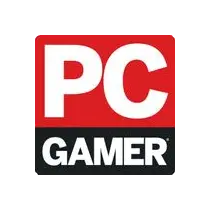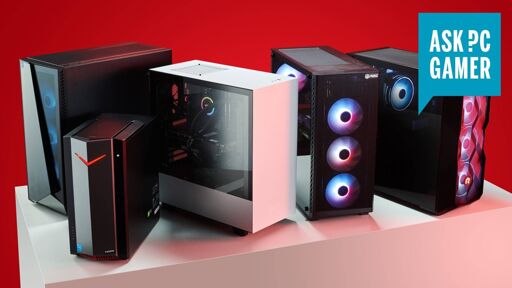A pre-built gaming PC is probably the most exciting purchase you can make. We’re talking about an entirely new system—perhaps even your very first one. But it can be a little daunting, too, seeing component after component, spec after spec, and trying to separate the wheat from the chaff. We’ve all been there.
In fact, I’ve been there enough to know that actually, it doesn’t have to be as daunting as it might at first seem. And I’ve helped others who have been there enough to know what the most common pitfalls are and what to focus on to get cracking and make a good gaming PC purchasing decision.
Once you approach it systematically by narrowing down your choices bit by bit, it becomes a rather straightforward process. Which is great, because gone are the days of incredibly overpriced builds—the barrier for entering the PC gaming market has never been lower. There are plenty of wonderful gaming PCs at pretty reasonable prices these days. Especially given it’s holiday season and there are already some cracking Black Friday gaming PC deals popping up.
If you keep the following tips in mind I think you’ll have a much easier time figuring out which PC to go for:
Start by choosing a graphics cardIdeally get 32 GB of DDR5 RAM, but 16 GB is fine on a tight budgetMake sure it has an NVMe SSD with 1 TB capacity, preferably 2 TBConsider your CPU’s general performance and socket upgradeabilityRemember you can always upgrade later, but it might cost more
1. GPU first
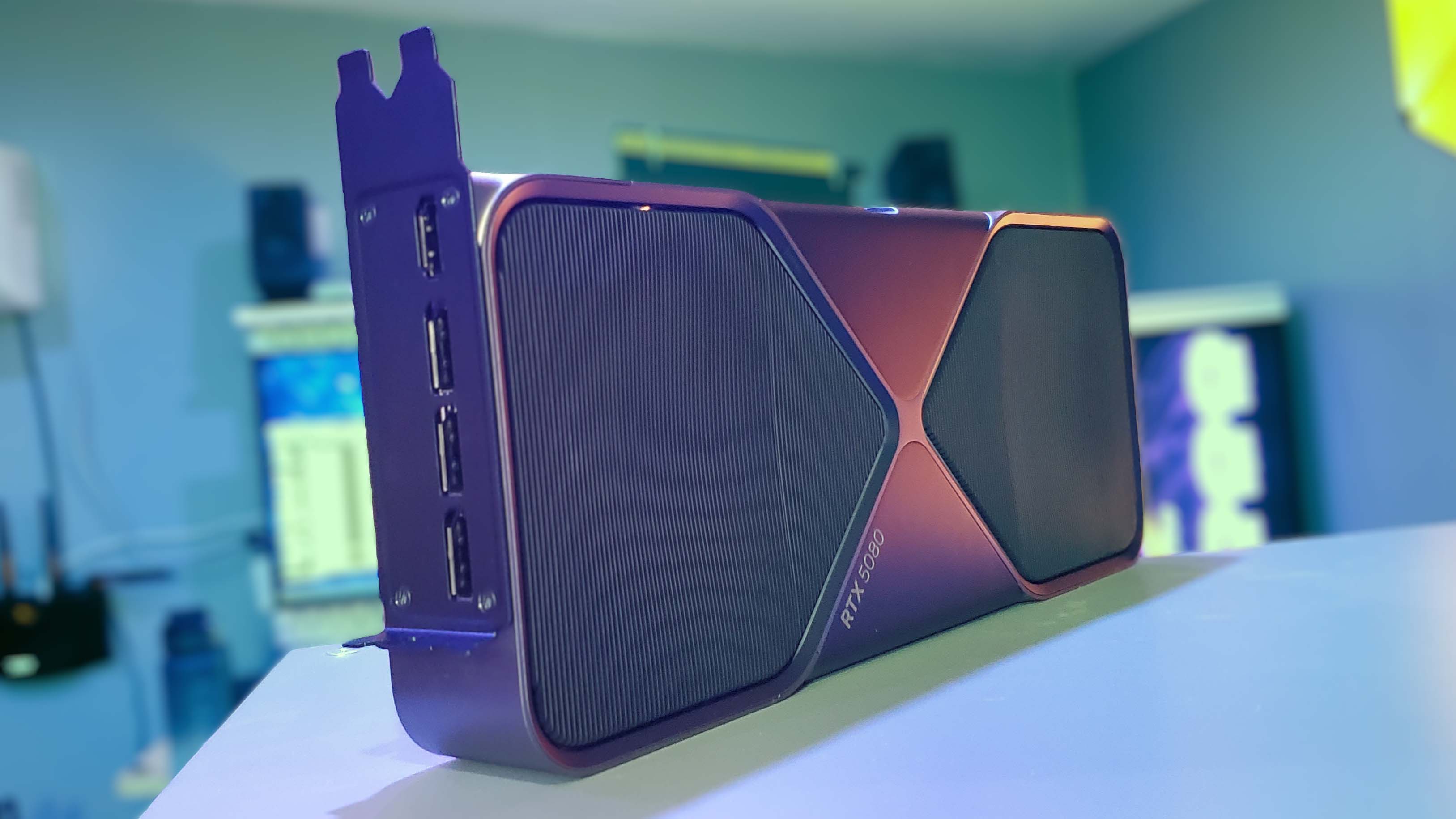
(Image credit: Future)
1. Start by choosing a graphics card
A gaming PC isn’t so much a single product as it is a collection of components, each with its own merits to consider. While this can initially make it a little overwhelming to decide on a PC, all it really means is that you have to narrow down what you want step by step. And the best way to do that is to start with the GPU.
After you’ve figured out your budget and eliminated options outside of it, start thinking about what graphics card you want in your gaming PC. Provided all the other components are at least passable, a good graphics card will have the most impact on your gaming performance.
The Nvidia RTX 50-series is with us, now, as is the AMD RX 9000-series, and these are what most of you should be looking for in a new gaming PC. That’s whether it’s a budget RTX 5060 build, a mid-range RX 9070 XT build, or a high-end RTX 5080 build.
You can check out our GPU hierarchy chart to get a quick feel for how all the different graphics cards stack up against each other, and of course, you can check out the full run-down of the best graphics cards, but here’s a super basic breakdown.
The RTX 5090 is the absolute fastest graphics card, but it’s super expensive. The RTX 5080 is what you’ll want if you don’t have an unlimited budget but want something very high-end, as this should still net you high frame rates at 1440p and be able to play any game at 4K.
At the mid-range, you have the RTX 5070, RTX 5070 Ti, and RX 9070 and RX 9070 XT. The RTX 5070 Ti and RX 9070 XT offer close to high-end territory and are great value for 1440p and even some 4K gaming, but the RTX 5070 and RX 9070 can be worth it if they drop down into close-to-budget prices.
At the budget end, the RTX 5060 Ti and RX 9060 XT are great choices and should get you by at 1080p and even 1440p on medium or medium-high settings in most games. There are 16 GB versions of these cards that you should try to go for if you can, but the 8 GB versions are fine if you’re on a budget—just don’t expect to be able to use the highest-resolution textures or play at high resolutions in all games with that amount of VRAM.
Below this, you have RTX 5060 builds, along with some Intel ones, RTX 5050 builds, previous-gen RTX 4060 and RTX 4060 Ti builds, and even integrated APU gaming PCs. These are fine if you’re on a strict budget and can be a stepping-off point to upgrade your GPU down the line. As such, with these builds, unless you’re opting for something incredibly cheap, try to at least get one with a motherboard and CPU platform that has a little longevity.
If you figure out what kind of performance you’ll be happy with, you can pick the graphics card that’ll net you that level of performance, filter out all PCs that have graphics cards you don’t want, and go from there. Starting by doing this is a great way to narrow down your options.
2. RAM
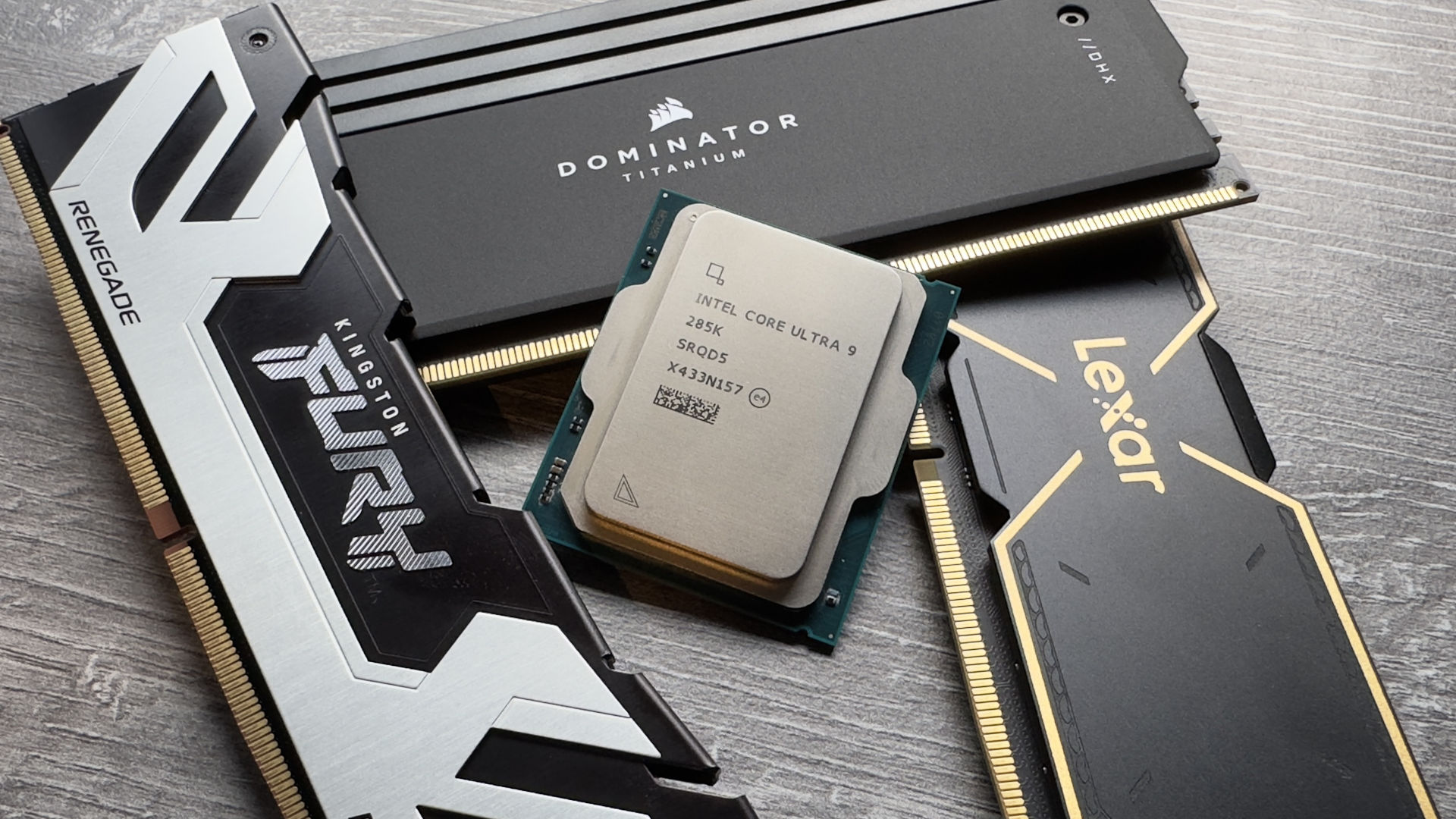
(Image credit: Future)
2. Ideally get 32 GB of DDR5 RAM, but 16 GB is fine on a tight budget
It seems like only yesterday that 16 GB of RAM was the gold standard for gaming PCs, but that’s no longer true. Today, 32 GB is the gold standard. This, however, has led some to assume that gaming PCs with 16 GB of RAM should be avoided entirely. But this isn’t true, either—at least if you’re on a very strict budget.
16 GB of RAM will bottleneck you in some games, especially if you have a lot going on in the background. But if you close most of your background apps, 16 GB should get you by in most games, and for some games it’ll be fine with background apps open, too. It won’t be the best RAM in the world, but it’ll get you by if you’re on a strict budget.
The main reason to opt for 32 GB of RAM, though, is for the peace of mind to know that you could play pretty much anything, at any settings, without memory capacity being a bottleneck. That, and knowing you won’t have to fork out a lot of money for new RAM down the line.
While RAM is super easy to upgrade, I can no longer say that it’s cheap to to do so. There’s a memory shortage right now, and it doesn’t look like it’ll be letting up any time soon. It looks like the price of RAM is going to continue increasing, so don’t rely on being able to upgrade your memory for cheap anymore. It’s best to get memory that will last, right now.
You should pay attention to your memory’s generation, too, and try to go with DDR5. If you get a gaming PC with DDR4 memory, your motherboard won’t support DDR5 so you won’t be able to upgrade to it. DDR4 should really be avoided these days, unless you’re going for a very budget-oriented build.
3. NVMe SSDs
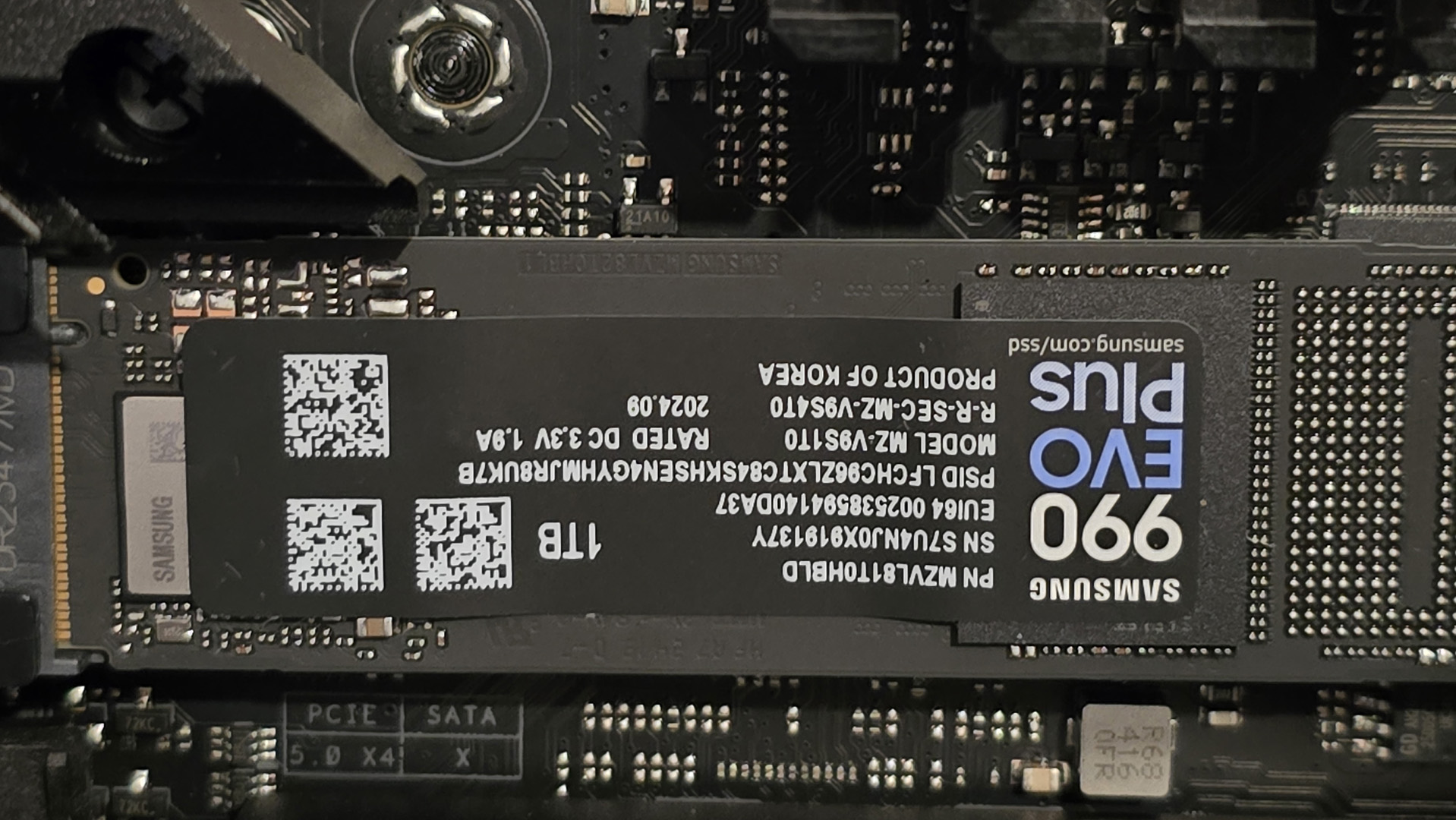
(Image credit: Future)
3. Make sure it has an NVMe SSD with 1 TB capacity, preferably 2 TB
Most PCs these days come with an NVMe SSD for their storage, but occasionally you’ll come across one with an old-school hard drive or SATA SSD, and these you should avoid. They’re great for extra mass storage, but not as main system drives.
A few years ago, NVMe drives were nice-to-haves but far from ubiquitous. Plenty of people still rocked SATA SSDs as a primary storage device, and this was fine, even when PCIe NVMe drives started hitting the market. That’s primarily because, at the time, NVMe drives were so much more expensive.
These days, however, NVMe drives are as cheap as SATA drives were back then, and they’re the de-facto pick. In fact, unless you’re cash-happy, it’ll probably be a PCIe 4.0 NVMe drive that you want, not a 5.0 one. PCIe 5.0 drives are finally worth a look—the WD Black SN8100 is fantastic, for instance—but a good PCIe 4.0 drive is plenty for most purposes, including gaming.
Also don’t underestimate SSD capacity. Yes, you can upgrade it down the line, but you risk running out of space well before you’d like if you only have 512 GB of storage, for instance. Unless you’re on a super-strict budget, given game and application install sizes these days, 1 TB capacity is a minimum, and 2 TB or more is ideal.
4. CPUs and sockets
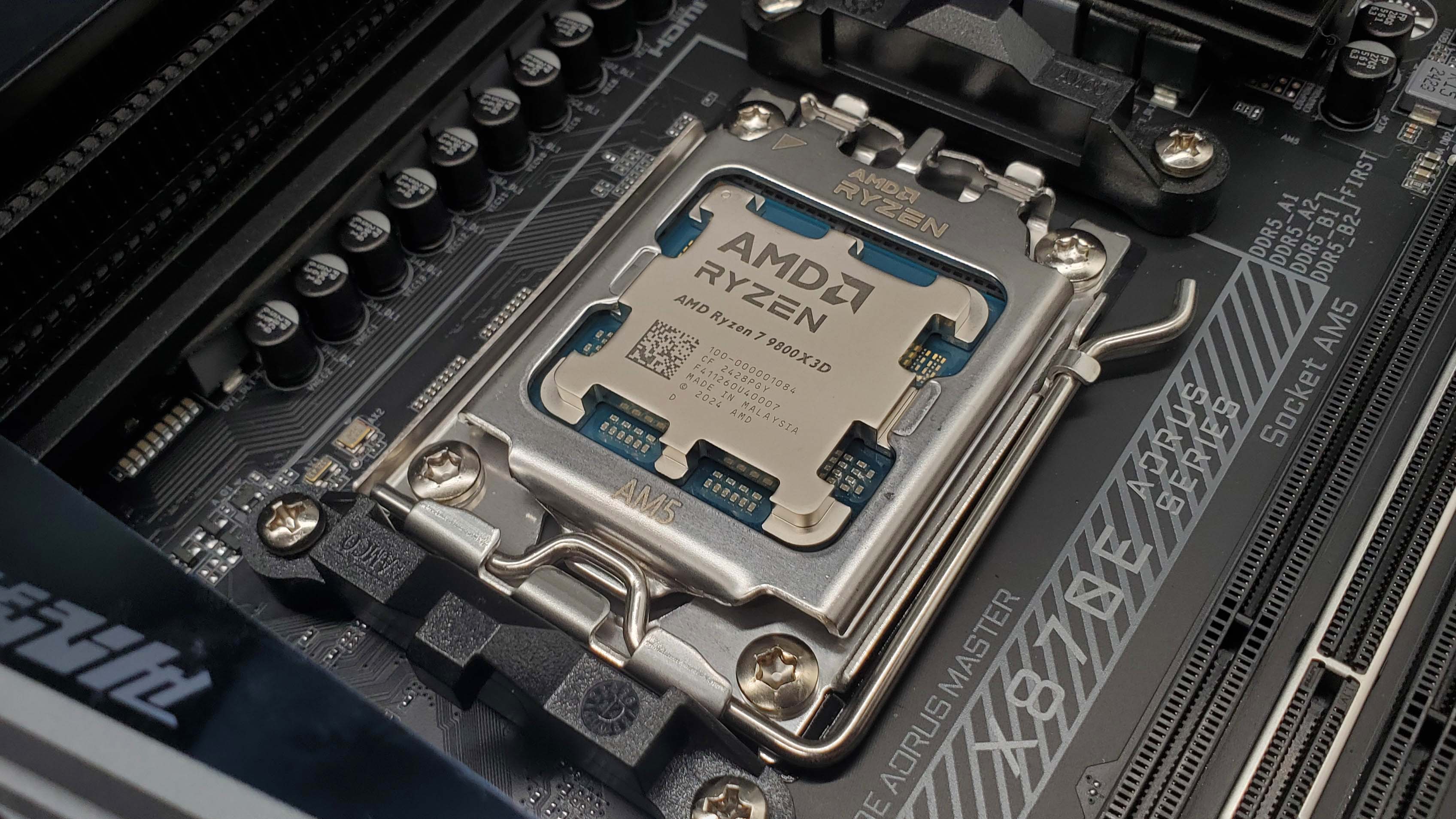
(Image credit: Future)
4. Consider your CPU’s general performance and socket upgradeability
When you’re buying a gaming PC, of course, you’re going to care about its gaming performance. But it can be easy to forget all the other things you might use your PC for, things that might require a more powerful CPU.
Budget CPUs such as the Intel Core i5 13400 and the six-core AMD Ryzen 5 7600X, although not the best CPUs on the market, are perfectly fine for gaming. However, you might be kicking yourself for not getting better if, for example, you end up doing CPU-intensive work such as encoding further down the line.
Similarly, if budget’s no concern and you want something ultra-high-end, you might go for an X3D chip such as the Ryzen 7 7800X3D or 9800X3D, because these will offer the best gaming performance without a doubt. But if you want the absolute best productivity performance, you might be best sacrificing a little gaming performance and going for a high-end Core i9 or Ryzen 9. There are no hard rules, just don’t forget to consider performance in areas other than gaming.
Don’t forget to think about the CPU and motherboard socket, either. When you’re building your own gaming PC you have to consider the motherboard socket to ensure it’s compatible with your CPU, but when you’re buying a pre-built gaming PC, you don’t have to consider compatibility at all. In fact, sockets often aren’t even listed in a PC’s specifications. Here’s a chart showing which sockets go with which CPUs:
Chipset Socket Supported CPUs X870 / X870E AM5 AMD Ryzen 7000, 8000, and 9000 series X670 / X670E AM5 AMD Ryzen 7000, 8000, and 9000 series B850 / B850E AM5 AMD Ryzen 7000, 8000, and 9000 series B650 / B650E AM5 AMD Ryzen 7000, 8000, and 9000 series B550 / B550E AM4 AMD Ryzen 3000, 4000, and 5000 series Z890 LGA 1851 Intel Core Ultra 200S series B860 LGA 1851 Intel Core Ultra 200S series Z790 LGA 1700 Intel Core 12th, 13th, and 14th Gen B760 LGA 1700 Intel Core 12th, 13th, and 14th Gen Z690 LGA 1700 Intel Core 12th, 13th, and 14th Gen
So, if you don’t have to worry about compatibility with a pre-built, why care about the socket? The answer is upgradeability. While a gaming PC’s socket obviously supports the CPU sitting in it right now, it might not support the CPU you choose to upgrade to down the line.
Right now, what this mostly means is that you should take care when considering a gaming PC with an Intel 13th or 14th Gen CPU, because these are the last generations that fit the LGA 1700 socket, meaning you’ll need a new motherboard to upgrade to a new CPU whenever you decide to upgrade, and Intel motherboards can be expensive. AMD 7000-series CPUs, on the other hand, fit the AM5 socket, and this is compatible with a 9000-series upgrade and will be compatible with the generation after that, too.
5. Upgradability
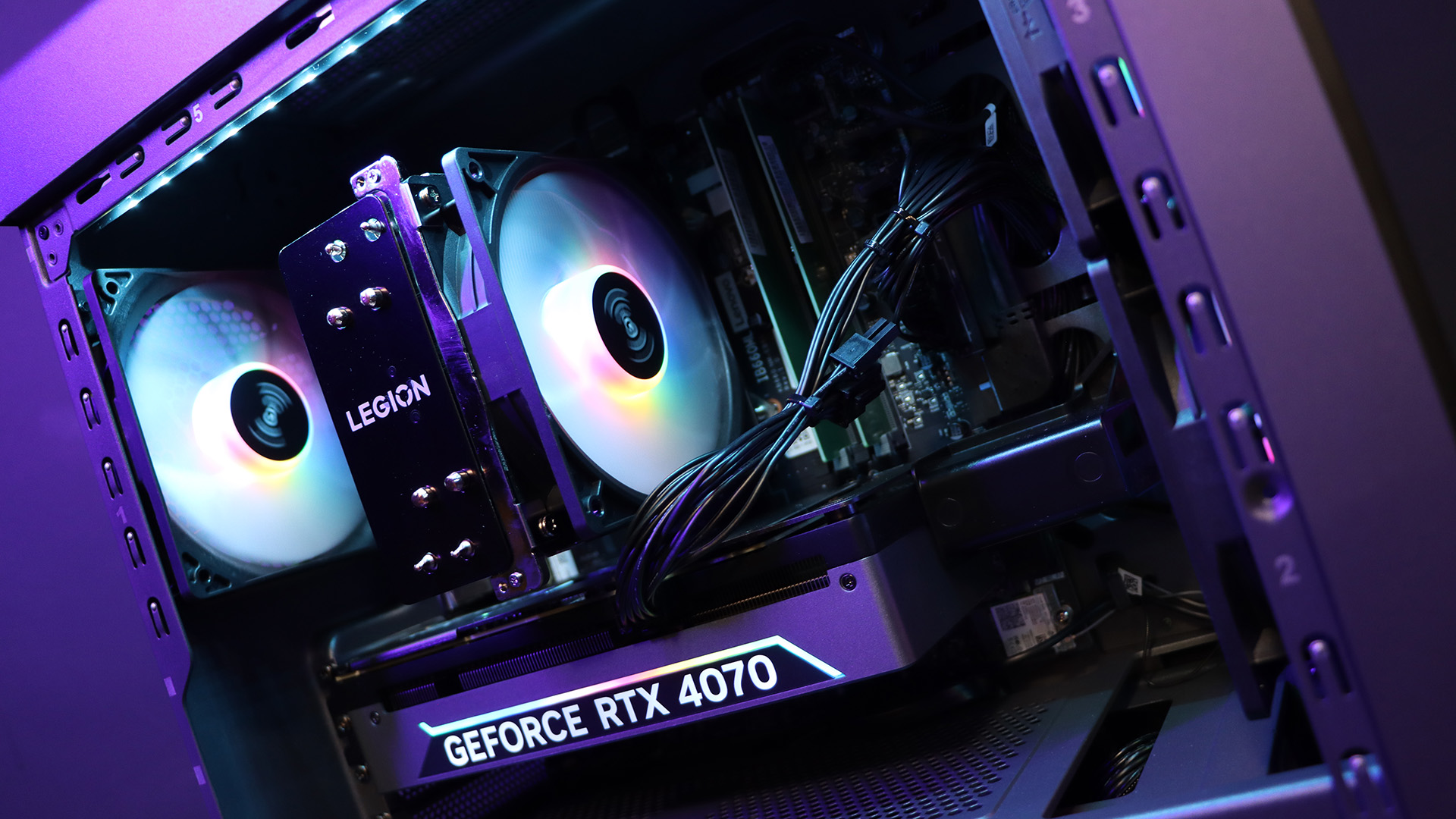
(Image credit: Future)
5. Remember you can always upgrade later, but it might cost more
There’s a lot to think about when it comes to gaming PCs because they’re essentially a collection of modular parts. But while this might make things seem a little overwhelming at first—something this guide has hopefully helped with—it’s also a massive boon. That’s because it means pretty much everything is upgradeable.
What this means practically, if you’re buying your first PC, is that you shouldn’t worry too much about getting something wrong and being stuck with it forever. There’s so much you can upgrade in your computer, from its graphics card to its CPU, memory, motherboard, storage, and plenty more.
There are a few things you need to keep in mind to ensure it’ll be easily upgradeable, but I think we’ve covered those, here.
You want to ensure you get a PC that supports DDR5 memory if you want to be able to upgrade that without switching motherboards. And ditto the socket: AM5’s the way to go if you want upgradeability, which means an AMD 7000-series or 9000-series chip.
Intel’s 13th and 14th Gen chips use LGA 1700 and so are incompatible with the latest Intel generation, and it’s unlikely that the next Intel generation will use the same socket as the current Core Ultra 200S generation.
Apart from those caveats, though, have at it. You’re not committing yourself to a never-changing rig. Most people who buy a gaming PC will probably end up upgrading some component or other before long. If you do so and you catch the PC building bug, you might even be in for a ship of Theseus scenario, perpetually rebuilding your gaming PC into eternity. There’ll always be a “later”, so don’t stress it too much.
Equally, though, don’t assume prices will remain the same or get cheaper, especially when it comes to RAM and possibly even graphics cards if these become affected by the memory shortage.
&
Best gaming PC 2025
All our current recommendations
Pick a category Best overallCore ComponentsChairs & DesksSystems & LaptopsScreensPeripheralsCases, Cooling & Storage Choose a list Best gaming laptop 2025Best gaming PC 2025Best gaming rigs 2025Best handheld PC 2025Best mini PC 2025  BEST OVERALL 1. HP Omen 35L Check Price
BEST OVERALL 1. HP Omen 35L Check Price  BEST BUDGET 2. Lenovo Legion Tower 5i (Gen 8) Check Price
BEST BUDGET 2. Lenovo Legion Tower 5i (Gen 8) Check Price  BEST COMPACT 3. Velocity Micro Raptor ES40 Check Price
BEST COMPACT 3. Velocity Micro Raptor ES40 Check Price  ALIENWARE 4. Alienware Area-51 Gaming Desktop Check Price
ALIENWARE 4. Alienware Area-51 Gaming Desktop Check Price  BEST MINI PC 5. Minisforum AtomMan G7 PT Check Price Read the full guide: Best gaming PC 2025POWERED BY
BEST MINI PC 5. Minisforum AtomMan G7 PT Check Price Read the full guide: Best gaming PC 2025POWERED BY &&&&&&&&&&&&&&&&&&&&&&&&&&&&&&&&&&&&&&&&&&&&&&&&&&&&&&&&&&&&&&&&&&&&&&&&&&&&&&&&&&&&&&&&&&&&&&&&&&&&&&&&&&&&&&&&&&&&&&&&&&&&&&&&&&&&&&&&&&&&&&&&&&&&&&&&&&&&&&&&&&&&&&&&&&&&&&&&&&&&&&&&&&&&&&&&&&&&&&&&&&&&&&&&&&&&&&&&&&&&&&&&&&&&&&&
&&&&&&&&&&&&&&&&&&&&&&&&&&&&&&&&&&&&&&&&&&&&&&&&&&&&&&&&&&&&&&&&&&&&&&&&&&&&&&&&&&&&&&&&&&&&&&&&&&&&&&&&&&&&&&&&&&&&&&&&&&&&&&&&&&&&&&&&&&&&&&&&&&&&&&&&&&&&&&&&&&&&&&&&&&&&&&&&&&&&&&&&&&&&&&&&&&&&&&&&&&&&&&&&&&&&&&&&&&&&&&&&&&&&&&&
From PCGamer latest via this RSS feed

